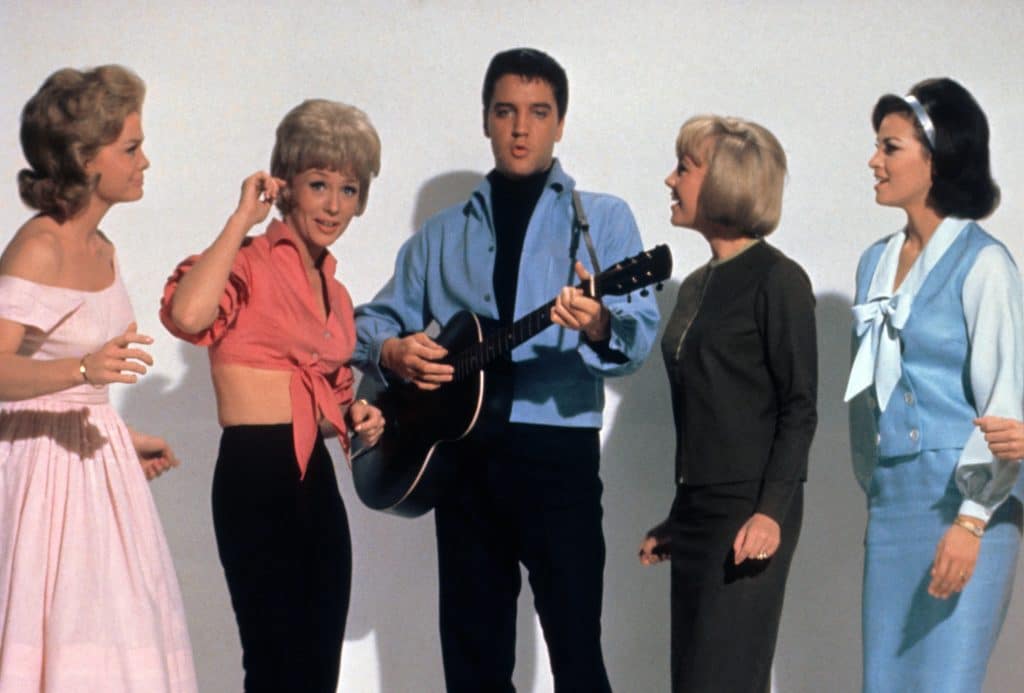What Race Was Elvis: Unveiling The King Of Rock 'n' Roll's Heritage
Elvis Presley, the name alone sends shivers down the spines of music enthusiasts worldwide. But have you ever wondered, what race was Elvis? His sound was a melting pot of influences, and his story is one of breaking barriers, both musical and cultural. Let’s dive deep into the roots of The King and explore the fascinating heritage behind the man who revolutionized the music industry.
Before we get into the nitty-gritty, let’s talk about why this question even matters. Race has always played a crucial role in shaping not just individuals but entire industries, and in Elvis's case, it was no different. His unique sound blended elements from various cultures, and his legacy continues to inspire countless musicians today.
Elvis wasn’t just a singer; he was a cultural icon. His rise to fame was marked by controversy, admiration, and a whole lot of intrigue. Understanding his racial background helps us appreciate the man behind the music and the impact he had on the world. So, buckle up, because we’re about to embark on a journey through time, music, and identity.
Read also:Exploring The Life And Marriage Of Khamzat Chimaev
Elvis Presley: A Brief Biography
Before we tackle the question of what race was Elvis, let’s take a moment to understand the man himself. Born on January 8, 1935, in Tupelo, Mississippi, Elvis Aaron Presley grew up in a modest household with his parents, Vernon and Gladys Presley. From an early age, music was a constant presence in his life, thanks to the gospel hymns he heard in church.
Elvis’s journey to fame began in Memphis, Tennessee, where he recorded his first song at Sun Studio in 1954. His unique style, blending country, blues, and gospel, quickly caught the attention of the music world. By the late 1950s, he had become a household name, earning the title "The King of Rock 'n' Roll."
But beyond his musical genius, Elvis was also a symbol of cultural change. He broke racial barriers in the music industry, bringing African American sounds to mainstream audiences and paving the way for future generations of artists.
What Race Was Elvis? Unpacking the Question
The question "what race was Elvis" might seem straightforward, but the answer is far more complex than you’d think. Elvis’s heritage is a fascinating mix of cultures and influences that shaped not only his music but also his identity.
Elvis was of predominantly European descent, with roots tracing back to England, Scotland, and Ireland. However, his music drew heavily from African American influences, particularly blues and rhythm and blues. This fusion of styles was groundbreaking at the time and contributed to his massive appeal.
It’s important to note that Elvis never shied away from acknowledging the influences behind his music. He openly credited African American artists like B.B. King, Jackie Wilson, and Big Mama Thornton for inspiring his sound. This acknowledgment was a testament to his respect for the culture he drew inspiration from.
Read also:Discover The Power Of Butter Sugar Coffee A Comprehensive Guide
Racial Identity in the 1950s: A Time of Change
The 1950s were a tumultuous time in American history, marked by significant racial tensions and the beginnings of the civil rights movement. In this context, Elvis’s rise to fame was nothing short of revolutionary.
At a time when racial segregation was the norm, Elvis’s music transcended boundaries. His performances often featured elements of African American culture, which were not commonly seen in mainstream media. This bold move earned him both praise and criticism, as some viewed him as a cultural appropriator while others celebrated him as a unifying force.
Despite the controversies, Elvis’s impact on race relations cannot be overstated. He helped bridge the gap between different communities and paved the way for greater acceptance of diverse musical styles.
Elvis’s Ancestry: Tracing His Roots
To truly understand what race was Elvis, we need to delve into his family history. According to genealogical research, Elvis’s ancestry is predominantly European, with a mix of English, Scottish, and Irish heritage.
His paternal grandfather, Rosco Presley, was of English descent, while his maternal grandfather, Robert Smith, had Scottish and Irish roots. This blend of European backgrounds contributed to the unique cultural identity that shaped Elvis’s upbringing.
However, it’s worth noting that Elvis’s family also had ties to the Southern United States, where African American culture played a significant role. Growing up in the South, Elvis was exposed to a variety of musical traditions, which he later incorporated into his own work.
Breaking Down the Numbers: Elvis’s Heritage
- English ancestry: 50%
- Scottish ancestry: 25%
- Irish ancestry: 25%
These percentages give us a clearer picture of Elvis’s racial background, but they don’t tell the whole story. His music and cultural influence were far more diverse than his genetic makeup alone.
Elvis and African American Music: A Love Story
Elvis’s connection to African American music is one of the most significant aspects of his career. From his early days in Memphis, he was drawn to the vibrant sounds of blues and rhythm and blues. Artists like B.B. King, Jackie Wilson, and Big Mama Thornton were major influences on his style.
Elvis often performed songs originally recorded by African American artists, bringing them to a wider audience. This practice was not without controversy, as some accused him of exploiting black culture. However, Elvis himself was quick to credit his influences and express his admiration for the artists who inspired him.
This mutual respect laid the groundwork for a more inclusive music industry, where artists of all backgrounds could share their talents with the world.
Elvis’s Impact on Race Relations
Elvis’s influence on race relations in America cannot be overstated. At a time when racial segregation was rampant, he broke down barriers by bringing African American music to mainstream audiences. His performances often featured elements of black culture, which were not commonly seen in the entertainment industry.
While some criticized him for appropriating black music, others saw him as a unifying force. His ability to bridge the gap between different communities was a testament to his talent and vision. By embracing diverse musical styles, Elvis helped pave the way for greater acceptance of cultural diversity in the music world.
Elvis’s Legacy: A Cultural Icon
Elvis’s legacy extends far beyond his music. He was a cultural icon who challenged societal norms and pushed the boundaries of what was possible in the entertainment industry. His influence can still be seen today in the work of countless artists who continue to draw inspiration from his groundbreaking style.
But perhaps his greatest legacy is the impact he had on race relations in America. By breaking down barriers and promoting cultural exchange, Elvis helped create a more inclusive society where people of all backgrounds could come together through music.
Lessons from The King: What We Can Learn from Elvis
- Embrace diversity: Elvis’s music was a fusion of different styles and cultures, showing us the power of embracing diversity.
- Give credit where it’s due: Elvis always acknowledged his influences, teaching us the importance of recognizing the contributions of others.
- Challenge the status quo: By breaking racial barriers in the music industry, Elvis showed us the importance of challenging societal norms and pushing for change.
Elvis in Modern Times: The King Lives On
Even decades after his death, Elvis’s influence continues to resonate with fans around the world. His music remains timeless, and his cultural impact is still felt in the industry today. But perhaps most importantly, his legacy serves as a reminder of the power of music to bring people together.
In a world that often feels divided, Elvis’s story is a beacon of hope. It reminds us that through music and mutual respect, we can overcome differences and create a more inclusive society.
Conclusion: What Race Was Elvis?
So, what race was Elvis? The answer is both simple and complex. While his ancestry is predominantly European, his music and cultural influence transcend racial boundaries. Elvis was a man who embraced diversity and challenged societal norms, leaving behind a legacy that continues to inspire generations.
As we reflect on his life and career, let’s remember the lessons he taught us about embracing diversity, giving credit where it’s due, and challenging the status quo. And let’s continue to celebrate the music that brought us all together.
So, what’s next? Share this article with your friends, leave a comment below, and let’s keep the conversation going. After all, The King’s story is one worth telling again and again.
Table of Contents
- Elvis Presley: A Brief Biography
- What Race Was Elvis? Unpacking the Question
- Racial Identity in the 1950s: A Time of Change
- Elvis’s Ancestry: Tracing His Roots
- Elvis and African American Music: A Love Story
- Elvis’s Impact on Race Relations
- Elvis’s Legacy: A Cultural Icon
- Elvis in Modern Times: The King Lives On
- Conclusion: What Race Was Elvis?
Thanks for joining me on this journey through the life and legacy of The King. Until next time, keep rocking!


